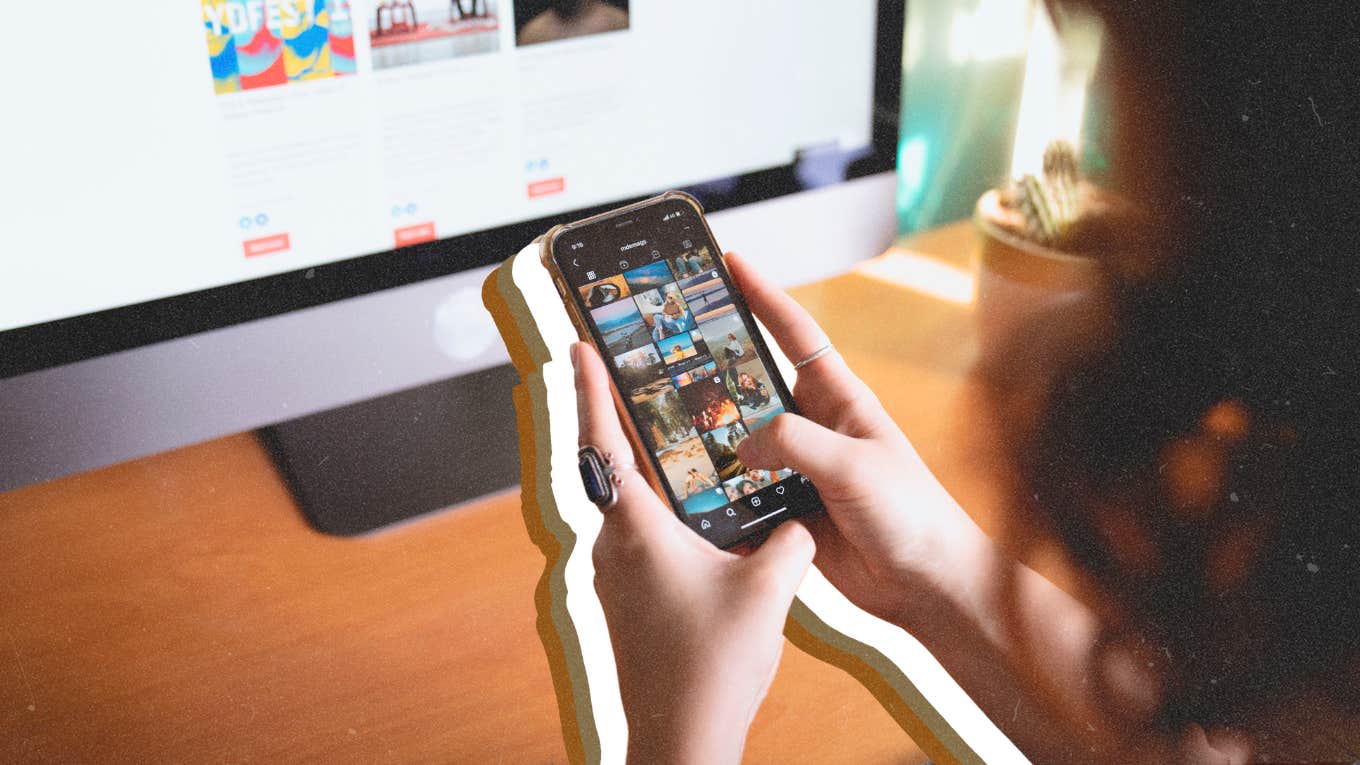
Your social media use is ruining your life.
By Alexandria Fields
Last updated on Jan 13, 2024
Photo: Los Muertos Crew | Pexels

In an era where we are all connected 24/7 via social media, it's easy to overdo it. If we're being honest, most of us are at least a little guilty of checking our phones too much.
But if you know someone who is always on their phone, to the point where their life is being affected, they may need a social media detox.
Or that person might be you.
Do you think about your phone more than your spouse, children, or job? Do you find yourself unable to battle against the urge to check your phone during inappropriate or unsafe situations?
RELATED: The 6 Social Media Mistakes That Destroy Your Relationship
Do you feel lonely and isolated much of the time? Do you feel ashamed of your relationship with social media?
If you answered "yes" to any or all of the above questions, you might need a social media detox.
According to a study from 2020 conducted by We Are Social and Hootsuite, 3.8 billion people are using social media and the number only continues to rise.
Pew Research has been tracking social media use since 2005 — when the rate of adults on social media was 5 percent — and found that as of 2024, 72 percent of adults are now on at least one platform, with Facebook being the most common.
These numbers help to put into perspective how common social media use now is for adults.
Unfortunately, social media use can trigger issues like addictive behavior patterns and maladaptive coping mechanisms.
Social media companies are aware that users experience feel-good hits of dopamine when they get notifications, and they exploit that.
Our brains also crave novelty, which is why apps like TikTok can be especially addicting as we scroll through an endless loop of new content.
Here are 5 signs social media is taking over your life — and you need to quit:
1. You can't stop thinking about the platforms you're on
Do you find yourself sitting at work, at dinner with your family, and/or in gatherings of friends but can't stop thinking about whether you have notifications, messages, and/or friend requests?
 Photo: Andrea Piacquadio/Pexels
Photo: Andrea Piacquadio/Pexels
Social media platforms are aware of the addicting nature of their products — they hire psychologists to help make their platforms more enticing than their competitors.
So, get mad at the platform — not yourself!
RELATED: The Lie About Social Media That Fooled 82 Million People
2. You place yourself — and others — in danger when checking your notifications
If you can’t wait until you get to your destination before checking your notifications, it's time to take a break from social media.
You may not be willing to admit it publicly, but I can tell you, just from sitting at a stop sign, that the number of people checking their phones while driving is on the rise.
If you cannot "ride the wave" of urgency to check your phone while driving, an addiction is likely growing or has taken over.
You need to take control of your circumstances by putting yourself on a detox.
3. You risk your job and/or status in a group to check your notification
Are you trying to sneak glimpses of your phone in church, at your kids' events, work meetings, and/or social gatherings where your attention and participation are expected?
Are you preoccupied with what would make a good post, story, or boomerang?
Do you find yourself taking steps to enable your cell phone use, such as dimming your phone screen before entering the movies because you don't think you can avoid checking your phone for 90 minutes?
All of these are signs that you're not in control of your actions. When you can't go 15, 60, or 90 minutes without checking on your notifications, you've already started sliding down a slippery slope.
Take action today to exert control over your devices.
RELATED: Why This Social Media Activity, More Than Any Other, Is Bad For You
4. You continue to grow your following but don't feel connected to anyone
This is a common side effect of social media. "Social" media promotes itself as a way to connect. However, users worldwide report the same isolating effect of their platforms.
Having "friends" and/or "followers" doesn't seem to translate into feeling cared for. If you find yourself chasing the high of more followers, you're already hooked.
And the cure is to connect with real humans in real life.
Related Stories From YourTango:
Consider taking a month off from all social media platforms while simultaneously joining groups — book club, choir, bowling team, mom group, bible study, etc.
In-person groups are ideal but in the time of COVID, you can meet as a group, virtually, with cameras and mics on and everything!
5. You feel significant shame about your answers here.
Shame is that emotion that results from the belief that something is wrong with you. Shame keeps you in a cycle of hiding your behaviors and feeling incapable of change.
It's time for a change if you feel uncomfortable talking about how reliant you have become on your social media platforms.
As anyone with an addiction will tell you, gradually reducing use is rarely possible or effective.
A true cleanse means 4-6 weeks of no screens (if possible) or 4-6 weeks of zero social media contact. This may seem dramatic, but it's crucial to fully regain control.
There's hope and there's help for you!
If you feel unable to conquer the 4-6 week social media detox on your own, please consult with a therapist. Many workplaces offer a handful of free sessions each year and insurance plans also cover life coaches.
RELATED: Facebook Stalking Your Ex Is Bad For Your Health, Says Study
More for You:
Alexandria Fields, MSW, LISW-S, is a therapist, teacher, blogger, and the founder of Your Mental Restoration.
